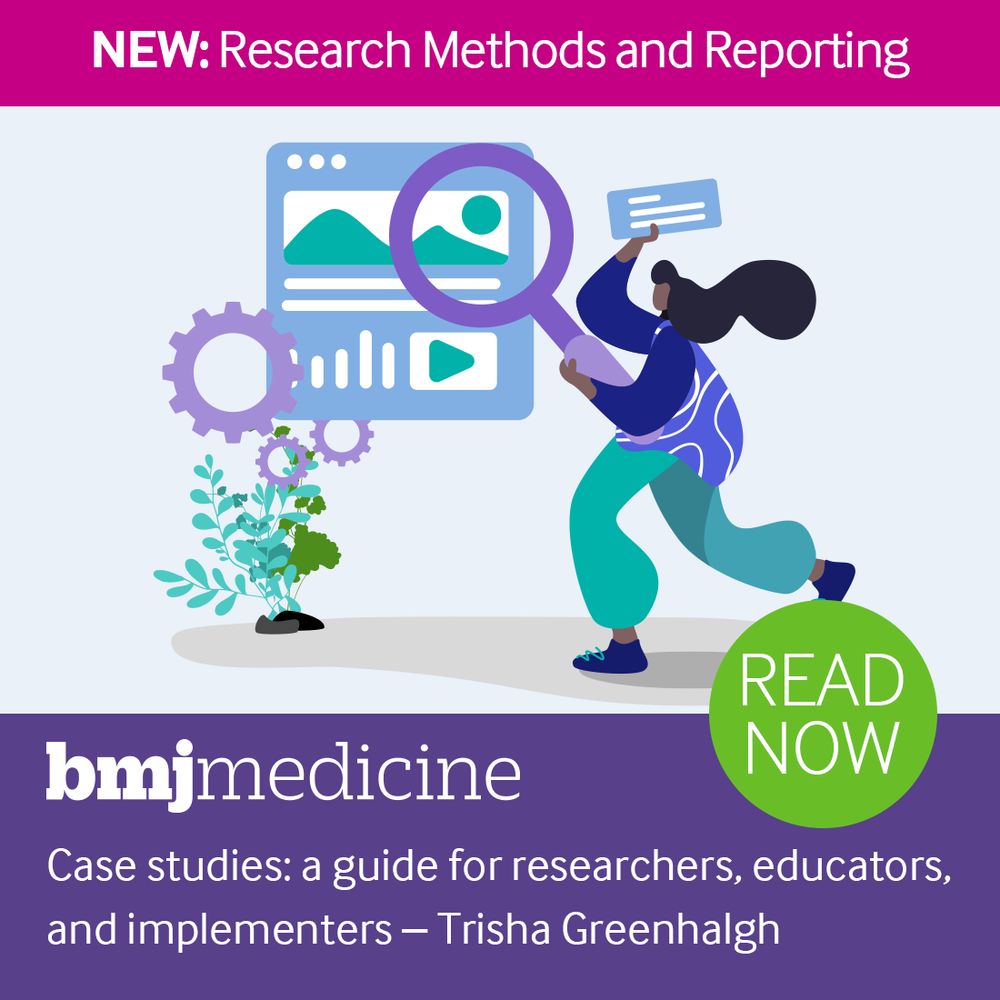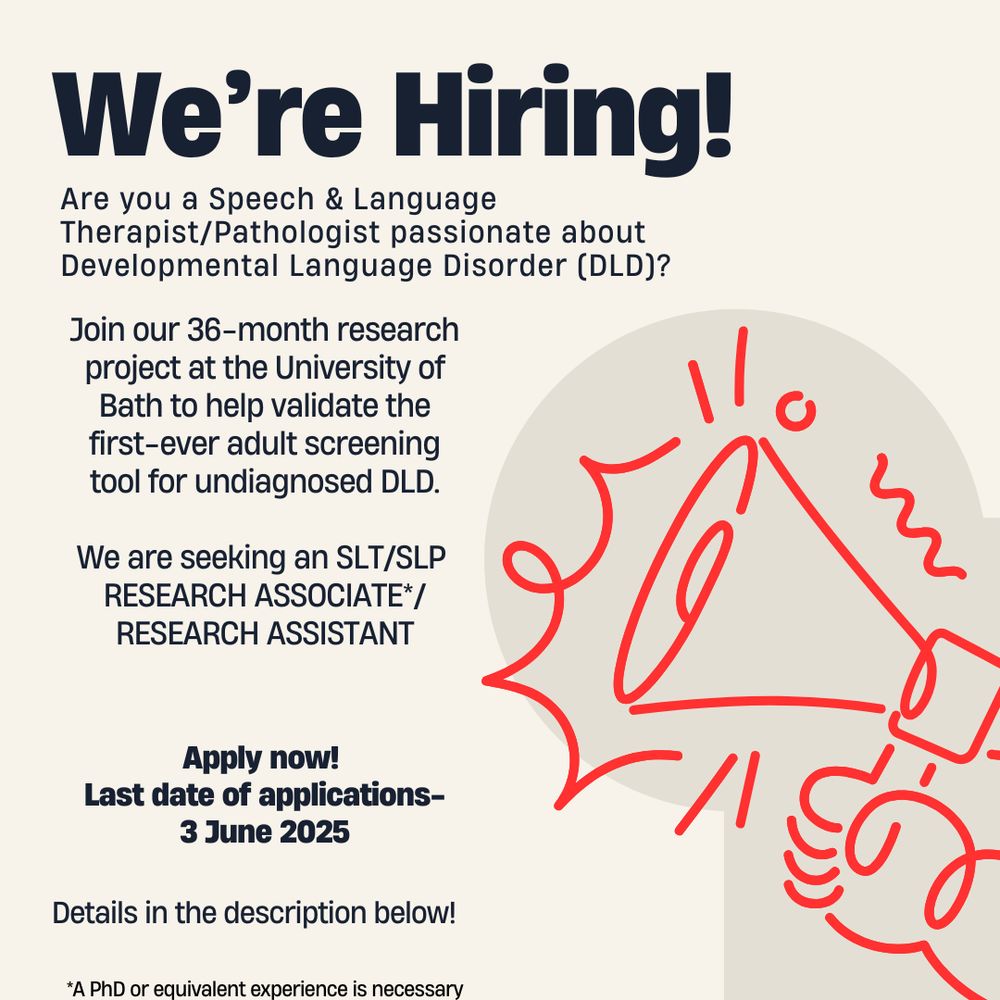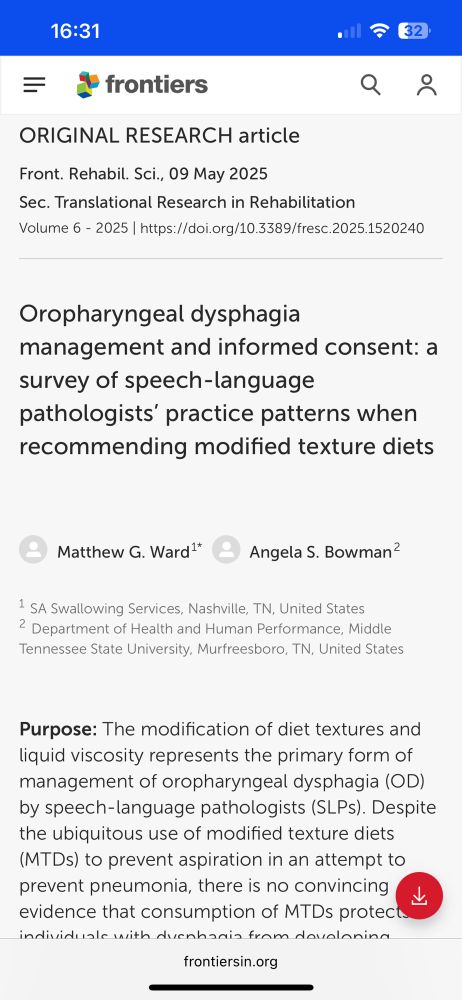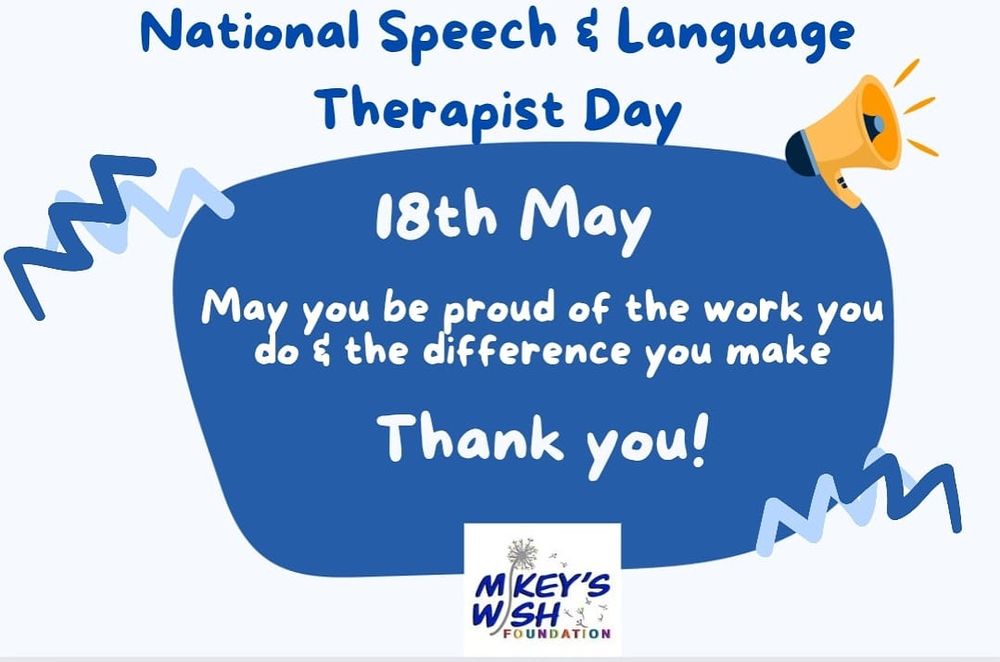
Play is the highest form of Research - Albert Einstein

📰 Check out RCSLT's response to the Budget issued with the rest of the #InvestInSLT home team.
📢 The need to invest in SLT, improve workforce planning, and the recruitment, retention, and CPD for SLTs remains as urgent as ever.
www.rcslt.org/news/our-res...

📰 Check out RCSLT's response to the Budget issued with the rest of the #InvestInSLT home team.
📢 The need to invest in SLT, improve workforce planning, and the recruitment, retention, and CPD for SLTs remains as urgent as ever.
www.rcslt.org/news/our-res...
Find out more: borninbradford.nhs.uk/news/new-stu...

Find out more: borninbradford.nhs.uk/news/new-stu...
Alongside some amazing collaborators, we're exploring the impact of green spaces 🌳🌱 for people in hospital after a stroke, their visitors and staff who care for them 💚
Funded by @thestrokeassoc.bsky.social, it aims to reduce inactivity & improve well-being of stroke survivors.
🔗 ageingstrokeresearch.org/new-research...

Alongside some amazing collaborators, we're exploring the impact of green spaces 🌳🌱 for people in hospital after a stroke, their visitors and staff who care for them 💚
📆 Deadline to apply: January 18, 2026
🔗 essd.org/essd-mentors...
Questions? Contact: [email protected]
#essd #mentorship #educationacademy #mentee #mentor #dysphagia

📆 Deadline to apply: January 18, 2026
🔗 essd.org/essd-mentors...
Questions? Contact: [email protected]
#essd #mentorship #educationacademy #mentee #mentor #dysphagia





#neuromodulation #neurostimulation #PES #rTMS #tDCS #dysphagia


#neuromodulation #neurostimulation #PES #rTMS #tDCS #dysphagia
This will fund human-centred work on communication accessibility, exploring emerging AI & embodied form factors.
I'm hiring 2 HCI postdocs, an SLT researcher & a PhD student:
tdjneate.github.io/flf/flf_anno...




Essential reading for robust research!
https://bit.ly/47PL01l

@bihr.bsky.social
@nihr.bsky.social

@bihr.bsky.social
@nihr.bsky.social

Learn more in JSLHR: at.asha.org/It
@csdisseminate.bsky.social @sigperspectives.bsky.social
#SLPeeps

Learn more in JSLHR: at.asha.org/It
@csdisseminate.bsky.social @sigperspectives.bsky.social
#SLPeeps
Applications from researchers, practitioners, volunteers, community organisations, charities, grassroots groups and people with lived experience of dementia
youtu.be/Rar5rJ1HiMw?...

Applications from researchers, practitioners, volunteers, community organisations, charities, grassroots groups and people with lived experience of dementia
youtu.be/Rar5rJ1HiMw?...
This is our guide to the common symptoms at each stage, but everyone’s dementia journey is different and if you need more help or advice we’re here for you.

This is our guide to the common symptoms at each stage, but everyone’s dementia journey is different and if you need more help or advice we’re here for you.
University of York @york.ac.uk are setting up a practitioner advisory network for their new trial about supporting people newly diagnosed with dementia.
Find out more
www.york.ac.uk/business-soc...

University of York @york.ac.uk are setting up a practitioner advisory network for their new trial about supporting people newly diagnosed with dementia.
Find out more
www.york.ac.uk/business-soc...
We want Drs, nurses, psychologists, social workers, OTs, PTs & any other profession.
The survey can be accessed here: qualtrics.ucl.ac.uk/jfe/form/SV_...
We want Drs, nurses, psychologists, social workers, OTs, PTs & any other profession.
The survey can be accessed here: qualtrics.ucl.ac.uk/jfe/form/SV_...
Got research to share? We want to see it! 🧠🗣️
Submit your abstract via Oxford Abstracts (register if you haven’t already!)👇
🗓️ Deadline: 5th September
🔗 auth.oxfordabstracts.com?redirect=/st...

Got research to share? We want to see it! 🧠🗣️
Submit your abstract via Oxford Abstracts (register if you haven’t already!)👇
🗓️ Deadline: 5th September
🔗 auth.oxfordabstracts.com?redirect=/st...
Are you a Speech and Language Therapist/Pathologist interested in DLD?
We are looking for an SLT/SLP Research Associate/Assistant to join ous aiming to validate the first screening tool for undiagnosed DLD in adults.
Apply here: www.bath.ac.uk/jobs/Vacancy...
#DevLangDis

Are you a Speech and Language Therapist/Pathologist interested in DLD?
We are looking for an SLT/SLP Research Associate/Assistant to join ous aiming to validate the first screening tool for undiagnosed DLD in adults.
Apply here: www.bath.ac.uk/jobs/Vacancy...
#DevLangDis

Medical Breakthroughs: The Research Journey launches 11 June.
Real stories from patients & researchers behind life-changing medical advances.
🎧 Early listen: medical-breakthroughs.captivate.fm
#LTHTResearch #NHSInnovation #Podcast
Medical Breakthroughs: The Research Journey launches 11 June.
Real stories from patients & researchers behind life-changing medical advances.
🎧 Early listen: medical-breakthroughs.captivate.fm
#LTHTResearch #NHSInnovation #Podcast
The work speech therapists do truly changes lives.
Give your speech and language therapist a shout out in the comments. Let’s celebrate them.
Thank you. 💙

The work speech therapists do truly changes lives.
Give your speech and language therapist a shout out in the comments. Let’s celebrate them.
Thank you. 💙

